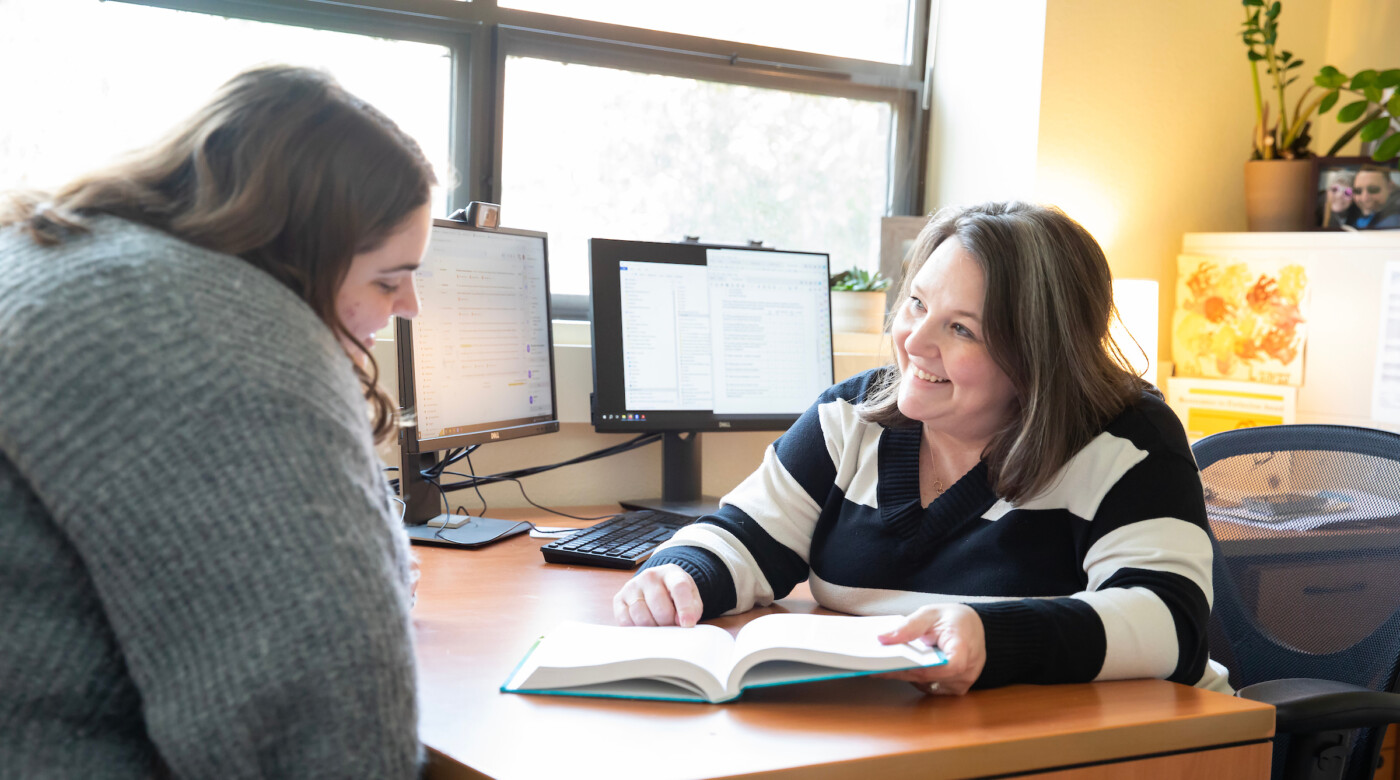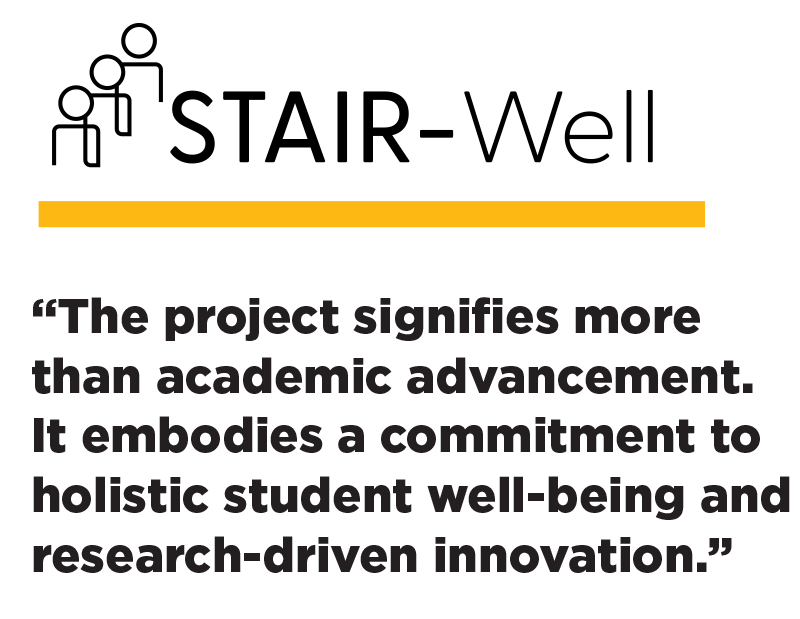Modernizing Mental Health
Professor Tiffany Artime co-leads a project that’s moving mental health support on college campuses forward

By MacKenzie Hines
Marketing and Communication
PLU professor and psychology department chair Tiffany Artime and her collaborator from Wellesley College Centers for Women are leading a team of researchers and stakeholders who envision a future where evidence-based trauma treatments are integrated into university counseling services, empowering students to thrive.
Artime and her collaborators are implementing and evaluating an approach to providing therapy to trauma-exposed young people that is new to college campuses. Although their project has just begun, they believe it has the potential to dramatically improve student well-being on college campuses.
Funded by a $2.5M award from the Patient-Centered Outcomes Research Institute, the three-year project will integrate an evidence-based cognitive-behavioral therapy called Skills Training in Affective and Interpersonal Regulation into the practice of 31 counseling centers at community colleges, large public universities, and small private schools.
Artime says the therapy — commonly referred to as STAIR — offers flexible core treatment components that can be effective tools for counselors working with students who have survived combat, accidents, sexual assault, and other traumatic experiences.
“STAIR is modular and flexible, focusing on emotion regulation skills and interpersonal skills, which are developmentally appropriate for college students,” Artime says. “The counseling centers will choose which modality they want to implement and can also implement multiple modalities of STAIR.”
Artime says the project appealed to her because it unites her professional identities as a clinical psychologist, researcher, and teacher in an integrated, cohesive way. Her passion for the project is derived from her belief that STAIR would improve the quality of life of many of her PLU students.
“I work with students all the time whose mental health challenges interfere with their functioning as students or with their lives,” Artime says.
This fall marks the beginning of the implementation phase of the project. Clinicians from the 31 participating sites are being trained in STAIR treatments and will begin incorporating the therapy into counseling students. As STAIR therapy methods are practiced, students and staff counselors will provide valuable insights that will guide the project’s evolution and help pave the way for future scalability. And, as the initiative unfolds, student research assistants at PLU and other partner institutions will have opportunities to contribute to the implementation, evaluation and reporting process.
“We’ve designed a great project and we have a huge number of sites and high-quality researchers and practitioners involved. By harnessing the power of data and collective expertise, the project will shape the future of mental health support on college campuses nationwide,” says Artime.
For Artime, the principles of STAIR and the project’s potential impact mirror the ethos of PLU and the Department of Psychology.
“The project signifies more than academic advancement,” she says. “It embodies a commitment to holistic student well-being and research-driven innovation.
“We’re implementing a therapy that is going to really help people.”


Psychology professor Laura Shneidman spends one (major) minute describing the exciting opportunities and experiences psychology students have at Pacific Lutheran University!



